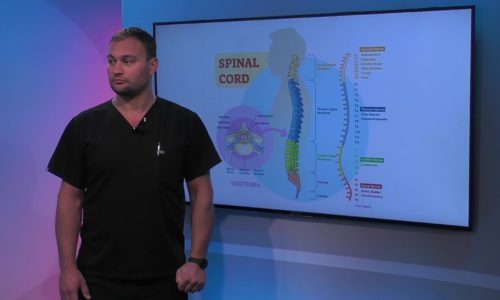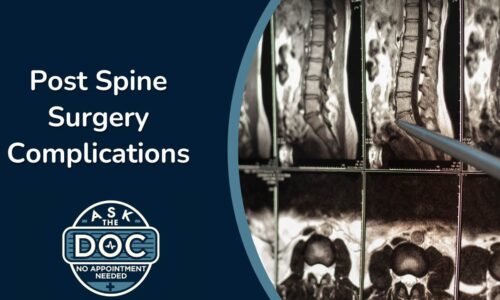Intervertebral Disk: Function & Degeneration |
All disks of the spine degenerate at some point, but not all degenerative disks cause pain, affirms Dr. Georgiy Brosuvanik, Spine Surgeon with Baptist Health South Florida.
When disks degenerate, they become shorter and wider, he affirms.
The functions of vertebral disks are: shock absorption, hold vertebrae together and allow for mobility in the spine, he explains.
Learn more here: Degenerative Disc Disease Symptoms, Causes, Treatments and more.
Transcript
Doctor those disks that I’m looking at there which I kind of called a little like jelly if you will, I know it’s not jelly but it’s like soft right, does it degenerate over time when one gets older?, does it get thinner?, does that cause problems?.> Sometimes, so old discs degenerate at some point, but not all degenerative discs cause pain, now as you mentioned all the discs do the generate in a very predictable manner, discs become shorter and wider, shorter contributes to our change in posture, and with time you could see our grandparents for example sort of move their heads forwards, and move a little more pitched forwards, that’s a problem related to digital generation, but it’s the widening of the discs that frequently results in nerve irritation, that is felt by patients down their legs on down their arms.> All right and we have a couple of functions of these discs, and let’s talk about these real quick doctor, especially that last one, which is mobility in the spine, let’s go through the first one shock absorption. > Absolutely so discs unlike bones, provide us with great shock absorption and a gelatinous component, which is inside the disc is the very cushion that gives us both height, and it gives us that spring ability, as kids that diminishes with time, discs do hold vertebra together, in fact 80% of spinal stability in the neck, and 60% of the stability in the lower back comes from the discs, finally discs do provide mobility in the spine, but not at the expense of nerve compression, so imagine if a disc becomes wider and starts to irritate a nerve, that causes this horrific pain to go down the shoulder and arm, those patients will feel more to not want to move their head, that’s your body’s own response to protect the nerve not allow it to have further injury, now we perceive these neck spasms, as severe neck pain, and it’s true to say that most of these spasms are muscular in nature, but the reality is that these spasms usually occur in conjunction to another process, which is usually a disc problem.> And that’s why so so important motion and mobility for the health of the back right?.> Absolutely, discs have to move.








